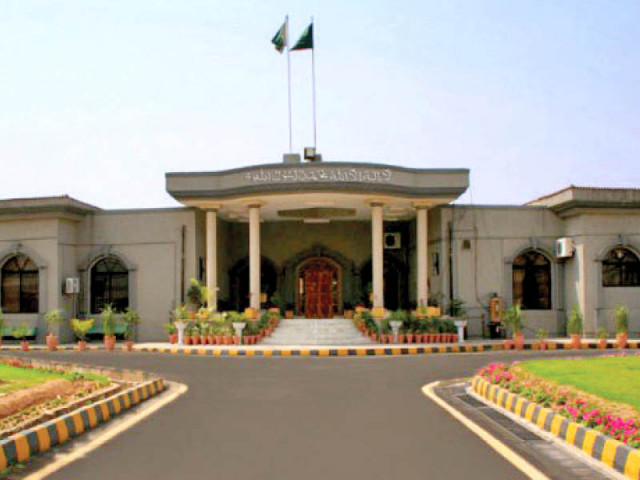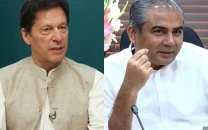Convention on rule of law: Call for more accountability in highest courts
SJC couldn’t achieve objective of ‘accountability’, says Hamid Khan

PHOTO: EXPRESS
This was stated by senior lawyer Hamid Khan, who explained that there were flaws in the self-accountability system of the judiciary which are made more evident by the fact that no superior court judge has been ousted by the council since the 1970s.
He was addressing the “All Pakistan Convention on Rule of Law” at the Islamabad High Court, organised by the Islamabad High Court Bar Association (IHCBA) on Thursday. IHCBA General Secretary Mohammad Waqas Malik, Pakistan Bar Council Member Shoaib Shaheen, Advocate Arif Chaudhry, and others added that the issue was a nationwide problem. They emphasised that all references pending against judges should be decided at the earliest.
Meanwhile, Malik once again threatened to lock the courtroom of the incumbent IHC Chief Justice Mohammad Anwar Khan Kasi if the SJC fails to decide his case before February 25.
IHCBA elections for the next session are on February 26. Former Chief Justice of Pakistan Anwar Zaheer Jamali had expressed his resolve to dedicate his tenure to self-accountability by reactivating the SJC – a constitutional body that holds superior court judges accountable – at the beginning of the 2015-16 judicial year.
Hamid said that the SJC, however, did not decide on several of the references pending against judges during his tenure.
Previously, he said, the vast majority of references had become infructuous since most of the judges had retired after completing their terms. Nonetheless, he said, he was hopeful that incumbent CJP Justice Mian Saqib Nisar would take steps to address the issue, adding that there should be a mechanism of accountability for judges.
While appreciating the decision of Justice Iqbal Hameedur Rehman to step down after the Supreme Court’s judgment of September 26 declaring scores of appointments in the IHC illegal, Hamid said that a national convention would be organised in March to draw more attention towards the issue.
Justice Rehman was accused of making illegal appointments in IHC and he tendered his resignation from the post following the September 26 judgment.
On the other hand, Malik said that besides making certain illegal appointments, Justice Kasi used undue influence for the illegal appointment of his brother Idrees Khan Kasi to a BPS-19 post in the court. But, he said, the SJC had not decided on the reference against Justice Kasi, and the judge himself was unwilling to resign.
In Paragraph 30 of the SC judgment, the apex court said about the appointment of Idrees Kasi that, “the incumbent Chief Justice [Anwar Kasi] was a judge in the Islamabad High Court and could have exercised influence for the appointment of his brother,” the reference against Justice Kasi reads.
PBC member Shaheen said that the lawyers had protested outside the apex court demanding the resignation of Justice Kasi in November, but the SJC has yet to decide the reference pending against him. He said that lawyers should evolve a comprehensive strategy in this regard.
On November 30, the lawyers’ bodies had given a country-wide protest call if Justice Kasi does not resign. Shaheen had said that corruption and nepotism in the judiciary could not be tolerated.
The SJC is a body of judges empowered under Article 209 of the Constitution to hear cases regarding misconduct by any high court or Supreme Court judges. A judge belonging to the superior judiciary can only be removed on the recommendations of the SJC.
Published in The Express Tribune, February 3rd, 2017.


















COMMENTS
Comments are moderated and generally will be posted if they are on-topic and not abusive.
For more information, please see our Comments FAQ